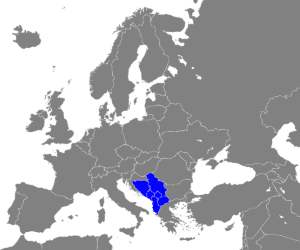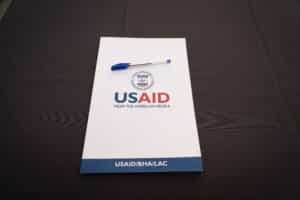On February 17th hundreds of people gathered at Tripoli’s Martyrs’ Square for the celebration of the 7th anniversary of the 2011 Revolution. Ever since, Libya has been in constant crisis. With multiple factions fighting for control over the country, a stable government and the creation of a functioning democracy have been a far-flung dream. Elections in 2012 and 2014 ended in chaos and the outcome was therefore heavily contested. With the United Nations currently implementing their new action plan for Libya, hope is rising once again that elections will soon be held in the fragmented country. Begging the question how viable the prospect of elections is in Libya?
UN Action Plan In late 2017 the United Nations Support Mission in Libya presented the UN Action Plan for Libya. The plan proposed to organize a “National Conference” in order to pave the way for future elections. The Action Plan is, “in essence, a synthesis of the hopes and goals of the Libyan people,” according to UN Special Representative Ghassan Salamé. “Libyans are tired of moving from one transitional period to another. I am not here to remove what is temporary and create another.” In the meantime some promising steps have been undertaken to implement the plan. Under the auspice of the UN, the Tripoli based High National Election Commission (HNEC) started with the registration of voters in Libya.
There are however major problems for organizing an election. With the country being divided among rival governments, armed groups and tribes, there is a lack of unity and stability. Violence between rival groups is still a day to day problem in the country.
A fragmented country The parliamentary and presidential elections that the UN hope to initiate should provide for a stable government that would replace the current Government of National Accord (GNA). The GNA was the result of a United Nations peace initiative to reconcile the opposing House of Representatives and General National Congress. The division between the governments was the result of the contested outcome of the 2014 election. The Government of National Accord was in the end not the solution to the problems of the country. The Tobruk based Libyan House of Representatives (HoR) never ratified certain key articles of the National Accord, that established the GNA.
The Tobruk government controls the largest part of Eastern Libya. Backed by the Libyan National Army (LNA) led by general Khalifa Haftar, the HoR has fought the Islamic fundamentalist in Benghazi. In the Western part of the country, the GNA based in Tripoli controls with its allies most of the coastal areas.
In the Southern part of the country the situation is even more complicated. Islamic State fighters still operate in the central desert of the country. In February multiple oil installations were under attack, threating the stability of Libyan oil supply. The sparsely populated desert towns often switch between sides to defend themselves. In Sabha local militias have sided with neither of the governments. This resulted in violent clashes between the Haftar’s LNA and the cities’ militias. Sabha is especially symbolic for the country’s situation. Multiple ethno-tribal groups are based in the city. Maintaining a tenuous peace. Meanwhile it became infamous in 2017 when it was reported that slave traders freely operate within city.
A country in ruins With this patchwork of alliances, organizing elections in Libya will prove to be very challenging. The HNEC hopes that the elections itself will overcome these difficulties. Experts are however troubled by the possibility of elections. According to the Atlantic Council, a US based think tank, the political situation has deteriorated and the current division is deepening. A foreign consultant for the BBC expressed his concerns about the potential implications of elections. “The biggest risk to holding an election today is that any result will lead to an all-out armed confrontation on a scale we have not yet seen.” There is currently no legal framework in which a government operates. A new constitution has been drafted, but many courts in Libya have ruled against it. Without a framework it is questionable if elections would lead to any form of government.
Other factors are also plaguing potential elections. After years of civil war the country is in ruins. The infrastructure of the Libya is heavily damaged. Roads that are intact are sometimes controlled by armed factions. Making it unlikely that the voting process will be smooth and save.
With the international community pushing for elections, while the country is more divided than ever, it becomes difficult to organize a credible vote this year.
Sources: UN BBC I BBC II Atlantic Council



